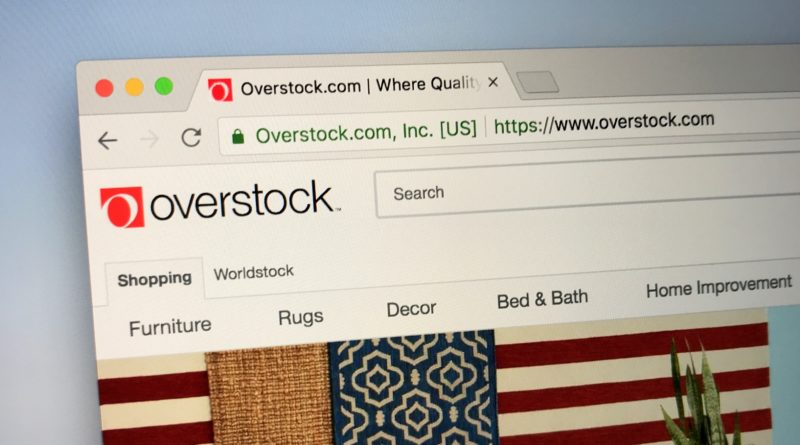The Importance of tZero for Tokenized Securities Adoption
With potential to become the most exciting securitization technology since the Exchange Traded Fund (ETF), the tokenized security is a promising technology platform. All stakeholders in the tokenized security industry should take a close look at the important projects being developed for this new asset class. In particular, one of the most advanced projects is tZero, developed by NASDAQ-listed Overstock.com and its Founder and CEO Patrick Byrne.
Securitization is the process of transforming assets into a security. One of the most popular securitization techniques was the ETF. Hundreds of billions of dollars in assets have been securitized through ETFs alone. Since 1998, assets securitized by ETFs have grown from less than $30 billion to over $4 trillion today.
A pioneer of the ETF industry, State Street securitized over $30 billion of gold into an ETF trading on the New York Stock Exchange under the ticker symbol “GLD”. It parlayed its success into many more ETFs, including the S&P 500 ETF which today has $275 billion in assets under management. Through financial engineering, even larger and previously illiquid assets like real estate were securitized into Real Estate Investment Trusts (REITs). Nowadays, an investor can easily buy a wide variety of ETFs: oil, silver, platinum, bonds, indices, offshore equities, and even preferred stock.
Crypto industry enthusiasts believe that the tokenized security has similar potential to the ETF as a platform technology. Due to the success and popularization of bitcoin, investors are becoming more comfortable owning cryptographic assets in general. Bitcoin has trailblazed a path to public ownership of other assets, including tokenized commodities and equities.
Securities, Not Utility Tokens
Investors have become understandably wary of non-security “utility” tokens. Utility tokens were popularized in 2017, yet suffered from unusually high levels of failure and scam artistry. Over 90% of Initial Coin Offerings (ICOs), most of which billed themselves as utility tokens drawing value from their “network” operations, have failed to deliver on promises. Hundreds of billions of investment dollars were destroyed as these projects collapsed during 2018.
Looking to differentiate themselves from utility tokens, proponents of security tokens proudly affirm the backing of this new class of tokens with real assets, not merely the utility value of a network. They envision tokenized gold, silver, oil, real estate, loans, warrants, and many other assets.
These tokens would represent actual ownership of the underlying asset. Redemptions would be generally encouraged, so that investors could easily swap their tokens for the underlying asset: ounces of gold, shares of stock, or whatever asset is specified in the token’s investment memoranda.
Tokenized securities provide a regulation-compliant avenue for bringing liquidity (daily trading volume as well as transferability) to a massive swath of assets that cannot be securitized onto traditional financial exchanges. One of the leading projects to bring liquidity to this new class of tokenized securities is tZero.
About Overstock (NASDAQ: OSTK) and Its tZero Platform
By 2014, Patrick Byrne had become a prominent supporter of crypto with his announcement that Overstock would accept bitcoin as payment. His e-commerce company became one of the earliest to accept cryptocurrency as a payment method. During subsequent years, Overstock has reportedly invested over $175 million in security token platform tZero and other crypto start-ups through its wholly-owned subsidiary, Medici Ventures. Medici Ventures today owns 80% of tZero.
The technologies built by tZero attempt to fix the inefficiencies of Wall Street processes as applied to a new class of securities: tokens. Tokens have distinctive properties vis-à-vis traditional financial assets. Many tokens live on immutable blockchains, are programmable via smart contracts, and require specialized custodial and accounting exertise. Blockchains are innovative in innumerable other respects which tZero is altogether attempting to address with its initiative.
Perhaps most importantly, tZero has built a digital asset exchange for the secondary trading of tokenized securities. The liquidity provided by secondary trading is a critical value proposition of tokenized securities.
The Transition of Overstock’s Series A Preferred Shares to tZero’s Trading Platform
Overstock’s common shares currently trade on the NASDAQ under symbol OSTK. Its Series A Preferred Shares trade on the Pinksheets under symbol OSTKP, and its Series B Preferred Shares trade on the OTCQX under symbol OSTBP.
Overstock sent a letter to all of its Series A shareholders (OSTKP) in which they were notified about the company’s intention to swap their shares onto tZero’s token trading platform. The transition is said to be taking place to enhance the trading experience of shareholders, adding utility and liquidity to tZero’s trading platform.
According to OTC Markets, there are 126,565 shares of OSTKP outstanding with a market capitalization of $2.1 million as of May 17, 2019. OTC Market shows zero shares custodied at the Depository Trust Company.
OSTKP must open a new account with Dinosaur Financial in order to facilitate the highly specialized swap. Overstock further explained in its letter that the swap would take place by issuing shares of a new series of stock in exchange for their Series A shares. With Overstock’s shareholder approval, the swap will be effectuated.
The shareholder letter received significant attention, as it was one of the first swaps of preferred equity into tokenized form. Proponents of tokenized securities believe that there are many more swaps, and native token issuances, of all types of securities that will occur in the coming months.
Since the day of its launch, tZero has been one among the leaders in the industry, offering enterprise-level solutions allegedly in compliance with U.S. regulations. The strategy behind tZero is that it has integrated securities regulation directly into its token protocol so that all security tokens can more easily remain compliant throughout their lifecycles. Its tokenized security exchange is one of a small handful of licensed security token exchanges currently registered in the U.S.

